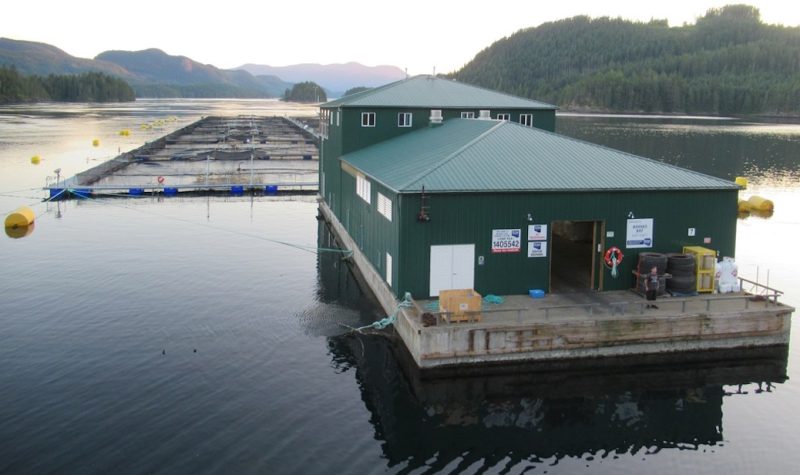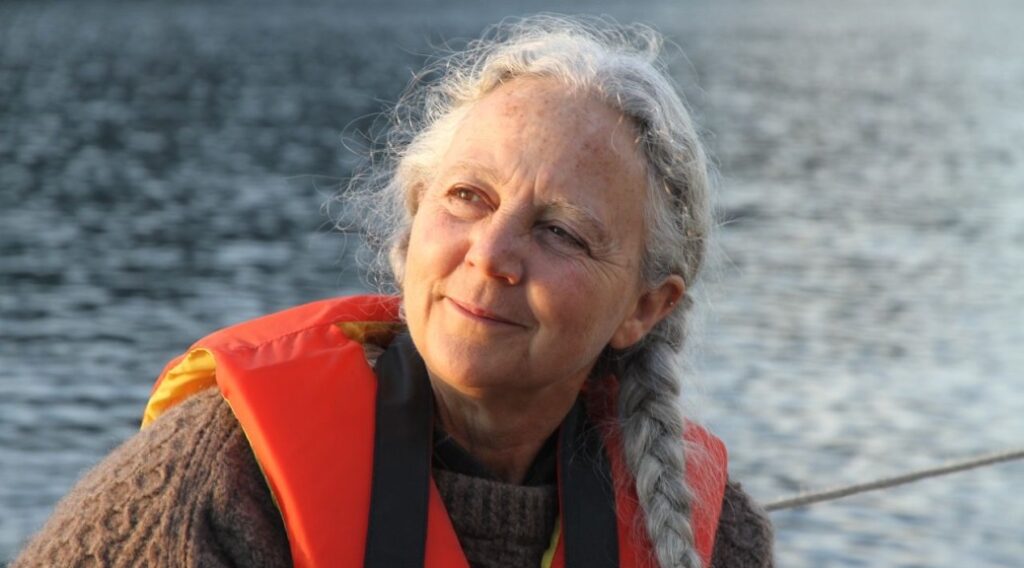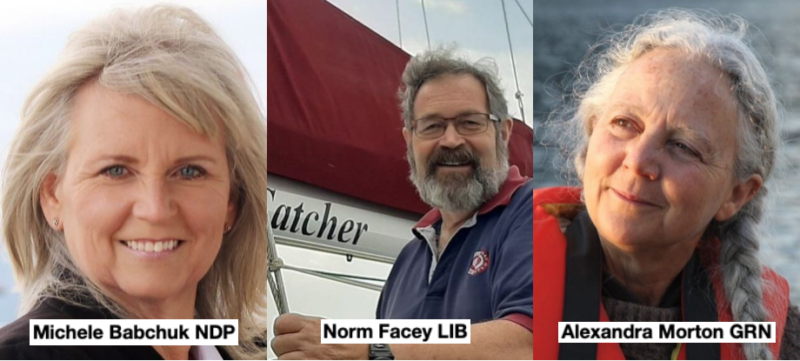By Roy L Hales
One of the reasons that Alexandra Morton is running for the Green Party in this election is that “over the last twenty years, I’ve seen the politics and policies that are killing off the wild salmon of this coast are also destroying our communities.” However fish farms are overseen by the Fisheries and Oceans Canada, not the provincial legislature. So I asked Alexandra, what can an MLA do about salmon farms?
How is the province involved?
“The licensing for salmon farms is federal, but it is the province that is the landlord. So they’re giving the tenures for the foreshore leases. I noted in the announcement that DFO made on the 28th of September, where they were talking about taking out the Discovery Island farms due to the Cohen Commission recommendation, they said they would be going forward in discussions with First Nations and also the province of British Columbia. So, the province is deeply involved in this,” she explained.
“They are also involved in the effluent that comes out of fish farm processing plants. For example at Brown’s Bay, where we found piscine reovirus (PRV). It is multi-jurisdictional but it is definitely in provincial hands as well.”
When does the lease come up?
“The leases are variable. Unfortunately, most of the tenures in the Discovery Islands are in the +2030 – which is a bit disappointing because twelve years ago the province of British Columbia came out and said that after 2023 the First Nations would have final say on whether these tenures would be renewed. But all the tenures are extended to the point where I believe the Fraser sockeye will simply go extinct.
What can the province do about effluence?
“They are also involved in the effluent that comes out of fish farm processing plants. For example at Brown’s Bay, where we found piscine reovirus (PRV). It is multi-jurisdictional but it is definitely in provincial hands as well.”
“In terms of the effluent and pouring the blood water from these industrial aquaculture operations into the Discovery Channel, which is where one third of Canada’s wild salmon are migrating – it’s such a bad idea. I believe that pipe just has to stop. It has to go into some kind of recycling facility. It has to be loaded into trucks, dewatered, dried out, turned into fertilizer – something other than just pouring it into the ocean.”
“I’ve been involved in this debate for quite awhile, with several processing plants. They deny that they are releasing live sea lice eggs or pathogens. Yet when divers go down and put plankton nets over these and bring them up to me, they are indeed loaded with pathogens and live hatching sea lice eggs. So, eyewitnesses to that.”
What’s the provinces role with the pipes?
“The provinces role with the effluent pipes is they are in control of what comes out of these fish farm processing plants. Plain and simple. It goes into the ocean, which is a federal environment, but the pipes themselves and the act of pouring effluent out of the plants and directly into the ocean, is a provincial jurisdiction.”
Moving fish farms on land
“One of the things that is so distressing to me is that this morning I saw an article saying the Grieg Seafood, which is one of the companies using this coast, is investing in land based fish farms in Japan as the future for their industry. Yet here in British Columbia we are continually being told by the three Norwegian companies – that’s who our fish farming industry is, just these three companies; here in British Columbia they are saying it’s too expensive,” says Morton.
“That’s not true. If they are investing in Japan, they are also investing in Norway. There are also land based farms in the United States.’
“This is what is so frustrating to me. There is such a beautiful way to move forward through this. Let’s upgrade the salmon farms [and] benefit from moving these things on to land. Instantly, there will be an enormous number of jobs just in building these facilities and then manning them. These are jobs where people are going to go home at night, not these camp based situations out on the floathouse.”
“And then there is this remarkable science in DFO where we can read the immune system of wild salmon and we could turn them back on. We can have both. This is the frustrating thing. We can have both, but the way we are going right now we aren’t going to have either.”




